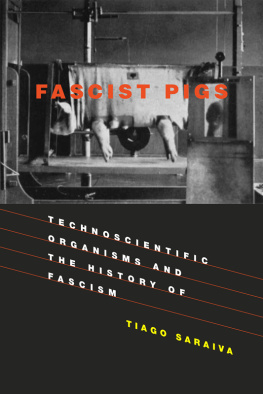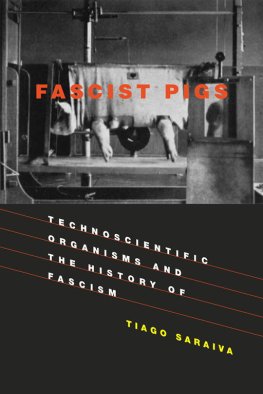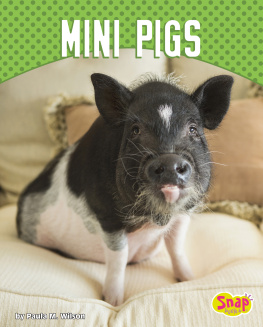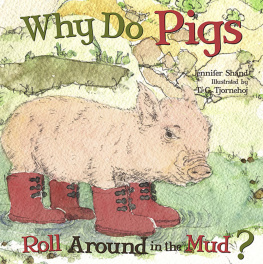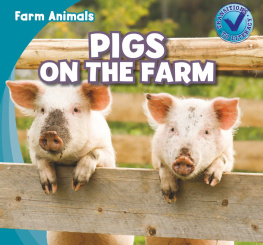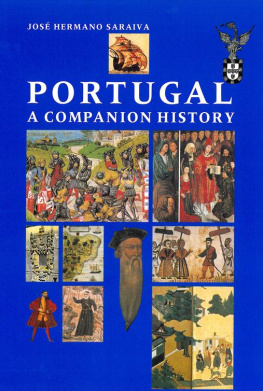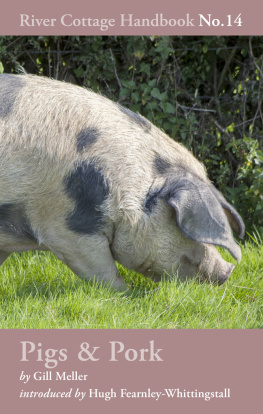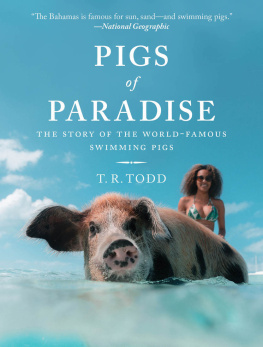Saraiva - Fascist Pigs
Here you can read online Saraiva - Fascist Pigs full text of the book (entire story) in english for free. Download pdf and epub, get meaning, cover and reviews about this ebook. year: 2016, publisher: The MIT Press, genre: Politics. Description of the work, (preface) as well as reviews are available. Best literature library LitArk.com created for fans of good reading and offers a wide selection of genres:
Romance novel
Science fiction
Adventure
Detective
Science
History
Home and family
Prose
Art
Politics
Computer
Non-fiction
Religion
Business
Children
Humor
Choose a favorite category and find really read worthwhile books. Enjoy immersion in the world of imagination, feel the emotions of the characters or learn something new for yourself, make an fascinating discovery.
Fascist Pigs: summary, description and annotation
We offer to read an annotation, description, summary or preface (depends on what the author of the book "Fascist Pigs" wrote himself). If you haven't found the necessary information about the book — write in the comments, we will try to find it.
Fascist Pigs — read online for free the complete book (whole text) full work
Below is the text of the book, divided by pages. System saving the place of the last page read, allows you to conveniently read the book "Fascist Pigs" online for free, without having to search again every time where you left off. Put a bookmark, and you can go to the page where you finished reading at any time.
Font size:
Interval:
Bookmark:
Inside Technology
edited by Wiebe E. Bijker, W. Bernard Carlson, and Trevor J. Pinch
A list of the series appears at the back of the book.
Tiago Saraiva
The MIT Press
Cambridge, Massachusetts
London, England
2016 Massachusetts Institute of Technology
All rights reserved. No part of this book may be reproduced in any form by any electronic or mechanical means (including photocopying, recording, or information storage and retrieval) without permission in writing from the publisher.
Set in Stone Serif and Stone Sans by Toppan Best-set Premedia Limited. Printed and bound in the United States of America.
Library of Congress Cataloging-in-Publication Data
Names: Saraiva, Tiago, author.
Title: Fascist pigs : technoscientific organisms and the history of fascism / Tiago Saraiva.
Other titles: Technoscientific organisms and the history of fascism | Inside technology.
Description: Cambridge, MA : MIT Press, [2016] | Series: Inside technology | Includes bibliographical references and index.
Identifiers: LCCN 2016013114 | ISBN 9780262035033 (hardcover : alk. paper)
eISBN 9780262335690
Subjects: LCSH: Agriculture and politicsEurope. | Agriculture and politicsAfrica. | FascismEurope. | FascismAfrica. | Plant breedingPolitical aspectsEurope. | Plant breedingPolitical aspectsAfrica. | Animal breedingPolitical aspectsEurope. | Animal breedingPolitical aspectsAfrica.
Classification: LCC HD1531.5 .S27 2016 | DDC 338.1/84dc23 LC record available at https://lccn.loc.gov/2016013114
ePub Version 1.0
for Vanessa, Francisco, and Antnio
This book owes much to many people. As with all the other subjects Ive explored as an academic, it all started with conversations with Antonio Lafuente, an endless source of new ideas. In early 2004, just before I finished my dissertation in the history of science department of the Spanish Council of Scientific Research (CSIC) in Madrid, Antonio and I became increasingly interested in the theme of the mobilization of science in the twentieth century and in the particular forms that Big Science assumed in Spain and Portugal under those countries fascist regimes. In the following years, I would return to Madrid and present early versions of the chapters of the present book at the CSIC, where I benefited from discussions with its distinguished community of historians of science and science studies scholars, namely Juan Pimentel, Javier Ordoez, Alberto Corsn Jimnez, Leoncio-Lpez-Ocn, Jesus Bustamante, and Javier Moscoso.
It was because of that early interest in Big Science and fascism that I applied to the Portuguese Science and Technology Foundation (FCT) for a postdoctoral research grant that would fund my early investigations of the history of Portuguese state laboratories. Maria Paula Diogo welcomed me at the Interuniversity Center for History of Science and Technology (CIUHCT) of the University of Lisbon and the New University of Lisbon, and in the following years she would become my main interlocutor among the expanding community of Portuguese historians of science and technology. I have presented my work at several CIUHCT seminars, and I am very grateful to all the faculty members and students who took part, especially Ana Simes, Henrique Leito, Ana Paula Silva, Ana Carneiro, and Maria Lusa Sousa. Considering the difficult budgetary situation of Portugal in the aftermath of the 2008 financial crisis, I have been amazed by how Maria Paula Diogo and Ana Simes were able to direct the main center of the discipline in the country, promoting excellent research, constantly supporting a large cohort of young scholars, organizing important international events, and maintaining a vibrant intellectual agenda around issues of knowledge production in peripheral contexts. I am also thankful to historians of science and technology and STS scholars working in other institutional settings in Portugal, namely Ana Cardoso de Matos, Ftima Nunes, Ana Lusa Janeira, Maria Fernanda Rollo, Joo Arriscado Nunes, and Tiago Santos Pereira.
That same postdoc grant also funded my first stay at the history department of the University of California Los Angeles (UCLA), to which I was attracted by the work of M. Norton Wise. Nortons ability to intertwine the technicalities of concrete historical scientific practices with general concerns of history (empire, state formation, romantic culture, Nazi ideology) has been an inspiration for my own work ever since. I would return twice to UCLA as a visiting professor (in 200708 and in 2011) and would benefit greatly from the friendship and scholarship of Norton and Elaine Wise, Theodore Porter, Mary Terall, Soraya de Chadarevian, Sharon Traweek, and Kevin Lambert. UCLA graduate students and postdocs in the history department and at the Institute for Society and Genetics were uniquely stimulating. Robert Schraff, Lino Camprub, and Carrie Friese were particularly generous in their intellectual interactions. Stevan S. Dubljevic was my daily interlocutor in Los Angeles, and many of the hypotheses put forward in this book were first expressed in long conversations with him and Vladan Jankovic, with the help of some very cheap pinot noir.
In 2008, while at UCLA, I was given a chance to organize, together with Norton Wise, a workshop on genetics and the political economy of fascism. The intense discussions among the participants were particularly important for the formulation of many of the methodological and historiographic questions addressed in this book. I am very grateful to Jonathan Harwood, Francesco Cassata, Gesine Gerhard, Lino Camprub, Lourenzo Fernndez Pietro, Bernd Gausemeier, and Christophe Bonneuil.
It was at UCLA that I decided to transform a project originally dedicated exclusively to the Portuguese context into one that would include the Italian and German fascist regimes. The abundant resources of UCLAs Charles E. Young Research Library and easy access to the whole University of California library systemthe largest academic library system in the worldhelped to enlarge my historical ambitions and imagination. I owe to Californias public system of higher education the privilege of consulting in my office, for extended periods of time, the complete series of journals published by the Portuguese National Agricultural Experiment Station, the German Imperial Biological Institute, the Italian colonial agricultural services, and the Mozambican Center for Scientific Research of Cotton.
In the years 20052012, while at the Institute of Social Sciences (ICS) of the University of Lisbon as a research scholar, I came across a major school of research in the history of fascism. My insistence in this book on the importance for historians of science of engaging with political, social, economic, and cultural historians of fascism is a direct result of my exposure to ICS scholarship. The more generic points made about fascism in the text emerge from dialogues with the ICS historians Manuel Lucena, Antnio Costa Pinto, Pedro Lains, Jaime Reis, Lus Salgado de Matos, Jos Luis Cardoso, Dulce Freire, and Jos Sobral. I am particularly indebted to Manuel Villaverde Cabral for many long conversations on the importance of considering a continuum of fascist experiences across Europe. I am sure he will recognize his influence in my obsession with fascist ideology of the land.
At the ICS, Hermnio Martins read my work closely and offered innumerable suggestions on readings and research paths. The reference to the French Greenshirts that opens the introduction to this book stems from his comments on my chapters on the Italian and Portuguese wheat battles. I was thrilled to be able to discuss questions of biopolitics with a scholar who not only produced one of the most influential early interpretations of the Portuguese fascist regime, but was one of the international pioneers of the field of Science and Technology Studies. In August of 2015, I received the terrible news that Hermnio Martins had passed away.
Next pageFont size:
Interval:
Bookmark:
Similar books «Fascist Pigs»
Look at similar books to Fascist Pigs. We have selected literature similar in name and meaning in the hope of providing readers with more options to find new, interesting, not yet read works.
Discussion, reviews of the book Fascist Pigs and just readers' own opinions. Leave your comments, write what you think about the work, its meaning or the main characters. Specify what exactly you liked and what you didn't like, and why you think so.

